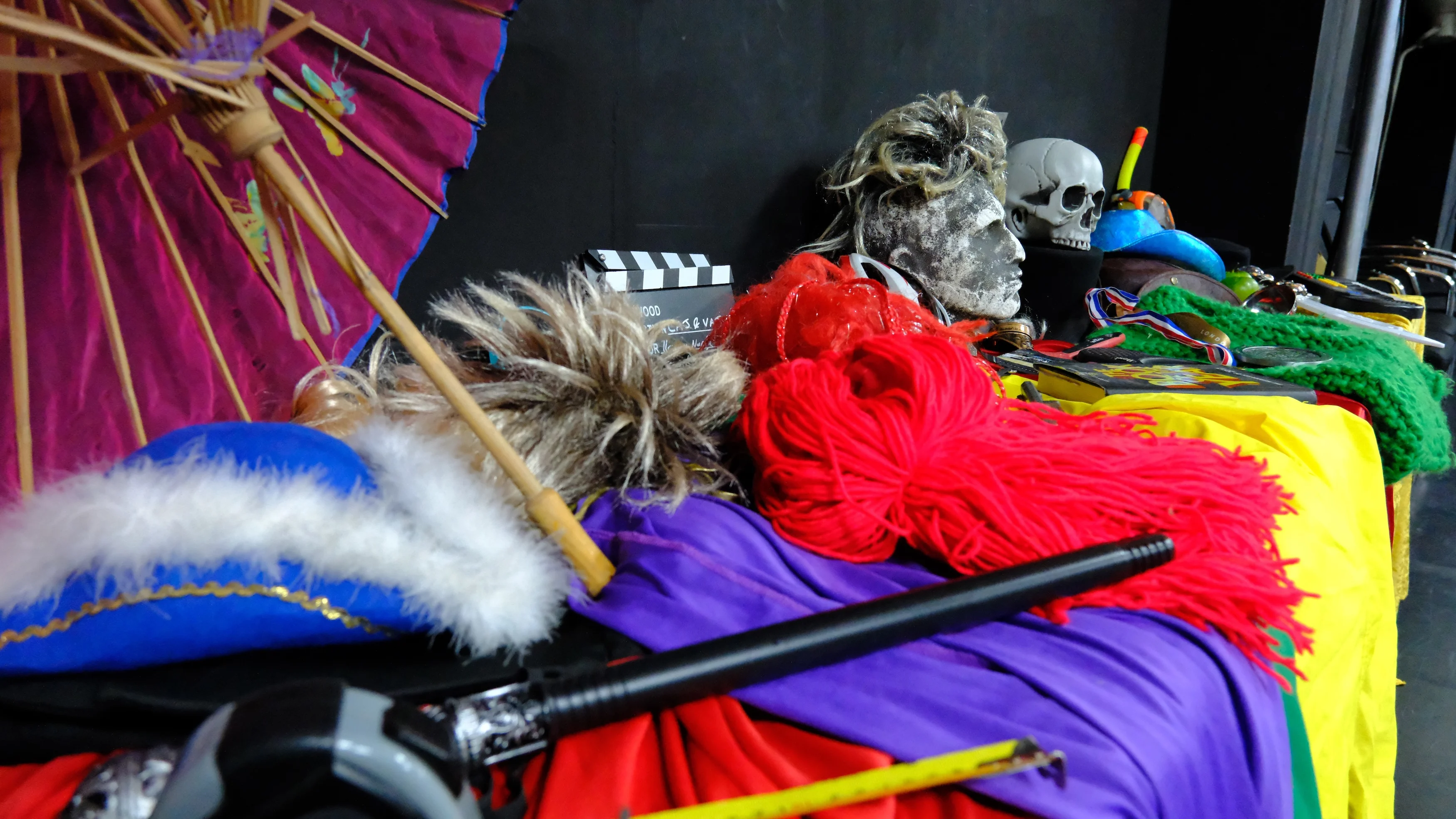
Make Friends Have Fun With Props: Play Games, Discover, Connect - Playface x The Fun Fed
Old Winchester Arms, London
Learn More

Clown comedy is one of the most fun and universal ways of playing and making people laugh. On first look, it might seem like pure chaos: physicality, exuberant joy and amplified silliness. But look closer and you’ll find a deep connection to the audience, radical vulnerability, and the bold courage to be totally ridiculous. At its heart, clown is not about red noses and circus tropes (though those might appear), but about being joyfully exposed and present. Clowns don't hide behind jokes or characters. They are the joke. Or rather, they reveal something true and ridiculous about themselves and invite the audience to laugh with them, not at them.
Stand-up Comedy is crafted and rehearsed, with the performer delivering material to an audience. While it may include personal stories, the dynamic is often more controlled. Clown comedy thrives in the moment and is co-created with the audience's reactions.
Improv Comedy is spontaneous and unscripted, but often focused on scenes, short form games, or story structures. Clowns may improvise too, but they stay anchored in their own emotional truth, playing directly with the audience more than with other performers. Improv is mostly scenes, clowns play games In improv you focus on your scene partner, in clown we focus on the audience
Sketch Comedy is rehearsed and performed in short, scripted scenes. While clowns might use sketches, clown comedy prioritises live relationship and surprise over a fixed script.
Character Comedy involves adopting a persona or exaggerated identity. Clowns might have personas too, but they never fully hide. Their clown persona is an extension of their own emotional logic, not a mask.
Audience Sensitivity: Clowns don’t just perform to an audience, they play with them. Every moment on stage is shaped by how the audience is reacting. Are they laughing? Getting bored? Delighted? The clown responds in real time. This live connection is the core of clowning.
Game & Play: Clowns find games to play - with themselves, with props, with the audience. These games might be as simple as catching a balloon or as complex as an emotional power struggle. The clown escalates the game, finds the fun, and moves on when it stops working. Every moment is an opportunity for a new game.
Failure is Funny: Clowns don’t try to be perfect. They try something, fail, and try again. The joy is in the attempt. The audience laughs not because the clown succeeded, but because they cared so much about something absurd.
Joyful Vulnerability: A clown reveals. Whether they are proud, awkward, angry or lost, they show it openly. The vulnerability makes the comedy more human, more shared.
Play Over Plot: Unlike narrative-driven comedy, clown comedy favours rhythm, surprise and interaction. A clown doesn't need to tell a story. They are the story.
Rhythm & Repetition: Timing is everything. Clowning uses stillness, silence, repetition and physicality to build comic momentum. A simple walk or a look can become hilarious if repeated or broken at the right time.
Emotional Truth: Even when absurd, clowning is grounded in real feeling. The audience laughs because they recognise the emotional honesty underneath the silliness.
Complicity: Clowns also build trust and complicity - with the audience, with each other on stage, and with the moment. In this shared space of play, everyone becomes part of the comedy.
Clown comedy is slippery. It resists tidy definitions. It can be loud or silent, solo or group, polished or messy. What unites it is a performer who dares to be seen, who plays with the audience, and who delights in the attempt to make them laugh—no matter the result.
Viggo Venn (Britain's Got Talent 2023 winner): A joyful modern clown. Watch his work to see audience sensitivity, simple games, and joyful physicality in action.
Mr Bean: Silent, physical, universally loved. A classic clown character.
Monty Python: Their most absurd sketches—Ministry of Silly Walks, Fish-Slapping Dance, Upper Class Twit of the Year—are pure clown logic.
The Mighty Boosh: Surreal, stupid, naive and deeply clownish in tone and physicality.
Sacha Baron Cohen: Borat, Ali G, Bruno - all born of clown logic, even when steeped in satire. (He studied with French clown master Philippe Gaulier.)
